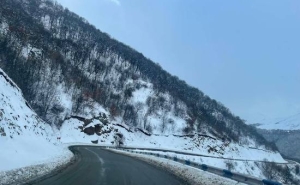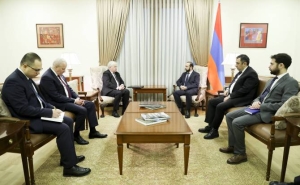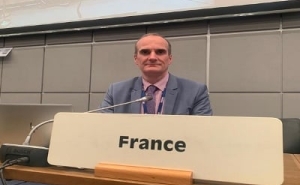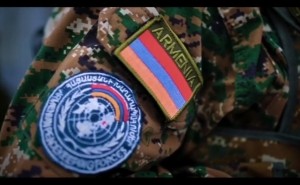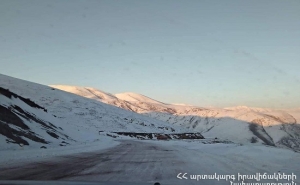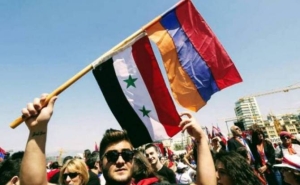PACE Winter Session: Challenges and Opportunities for Armenia and Artsakh
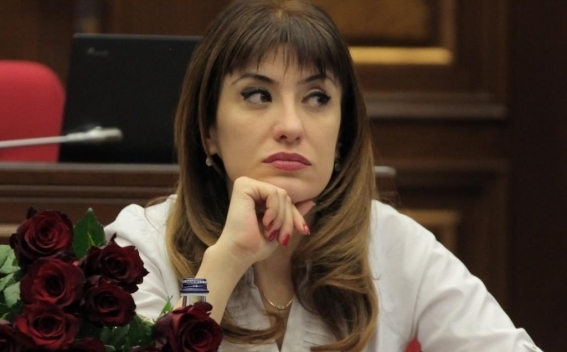
The PACE winter session has come to its end. Among the extensive agenda, there were many issues related to our country and the region. ''Armedia'' IAA spoke about the issues discussed during this session - in particular the new challenges and opportunities for our country - with Naira Karapetyan, Chairman of the European Integration NGO and former member of the Armenian delegation to the PACE.
- In your opinion, what challenges and opportunities will arise for our country from this session?
- A very important report was discussed at this session: "The monitoring process carried out by the Assembly in 2021 from January to December." This document presents the situation in separate countries, where monitoring was conducted. The main points are “hidden” right here.
* First of all, point 3 of the report states that ''the Assembly notes the committee’s continuous attention to the developments concerning the Nagorno-Karabakh conflict, and its readiness to actively contribute to the establishment of political dialogue between the parties concerned at parliamentary level''. The Armenian delegation didn't raise any objections or didn't offer changes on this point, at least to mention that Artsakh is also a party to the conflict, emphasize the realization of right of people of Artsakh to self-determination, but also to emphasize the fact that only the OSCE Minsk Group Co-Chairs institution has an international mandate that deals with the peaceful settlement of the Nagorno-Karabakh conflict. Instead, the Armenian pro-government MP, who spoke on behalf of the EPP political group, praised this point, forgetting that attempts to shift the Karabakh settlement onto other formats could be an additional support tool for Azerbaijan to disrupt the return to the negotiation process, to "digest" the results of the war, the so-called "new situation".
*In the section on Azerbaijan, there is no mention of our prisoners of war and forcefully held civilians, about illegal lawsuits against them, there isn't a word of the anti-Armenian speeches of Aliyev and other officials after the end of the war, the infamous military trophy park and other unacceptable phenomena known to us. Our delegation has not suggested to include these points on the report.
*In the section referring to Turkey there is no reference to latter’s obvious participation in the Second Artsakh War, on the supply of weapons, UAVs, special forces, terrorists to Azerbaijan, on the joint statements of Turkey and Azerbaijan which are full of threats. Our delegation again has not included its suggestions connected with Turkey. To ignore the importance of such reports and not to make any effort to present to the deputies of the 47 EC states the reality prevailing in these two states (Turkey and Azerbaijan), are a vital threat to our country.
-The PACE has adopted the resolution "Activities of Democratic Institutions in Armenia'',which was not accepted by the public unambiguously. What can you say about this document?
-Let us note that the resolution highly appreciates the ongoing democratic processes in our country. First of all it welcomes the last two national elections, held in 2018 and 2021, which is already surprising, as no election has been flooded with such hate speech in recent years, no leader in the country has run a campaign with a ''hammer in his hand''. Another indicator of democracy in the country is that the judiciary is far from being independent today, also the direct order by the head of state to block the court entrances, the attacks on the Constitutional Court could not go unnoticed by the rapporteurs. The resolution that does not include the persecution of the opposition, the initiation of various cases, the imprisonments, to put it mildly, is incomplete.
-Referring to the Artsakh conflict and the recent war, the PACE stressed the need for the return of Armenian prisoners of war, the need to preserve spiritual and cultural heritage, emphasized the inadmissibility of hate speech, insisted on the need of a lasting and just political solution to the Nagorno-Karabakh conflict within the framework of the OSCE Minsk Group. Will this have an impact on solving the problem?
-In order to achieve a strong and lasting impact the Council of Europe must take appropriate actions against Azerbaijan, which does not comply with ECHR decisions, for example, by imposing sanctions. On the contrary, at this session the head of the Azerbaijani delegation is elected as First Vice-Chairperson of PACE Monitoring Committee. And this all happens when cases of bribery and money laundering of PACE deputies by Azerbaijan have been revealed in this same institutaion.
- Is there a set of tools, in your opinion, that should be used to address the situation?
There is, indeed; but in addition to the tools, there must be political will. First of all, efforts must be made to carry out work on the resolutions that are being prepared on a daily basis, to carry out work with political groups, national delegations, individual deputies; we must not miss any opportunity to make our point of view and voice heard. For example, when the organization of media work in times of crisis was discussed at this session, the situation in Armenia was simply not presented, while during COVID-19 period there were restrictions connected with the work of journalists - those who had a different opinion from the government were labeled. Let's remember that democracy presupposes pluralism.
-
 17:08
17:08The regular session of the Anti-corruption Policy Council takes place in Jermuk
-
 15:05
15:05The Prime Minister sends congratulatory messages to the supreme leader of Iran and the President of Iran
-
 11:11
11:11Armenia sends earthquake aid to Turkey
-
 10:43
10:43Commemoration of the Pontiff St. Sahak Partev
-
 09:16
09:16Some roads are closed and difficult to pass in Armenia
-
 19:55
19:55Phone conversation of the Foreign Minister of Armenia with the U.S. Assistant Secretary of State for European and Eurasian Affairs
-
 18:30
18:30Prime Minister Pashinyan and President Khachaturyan meet
-
 18:20
18:20Ararat Mirzoyan with Co-Chairman of the OSCE Minsk Group of France Brice Roquefeuil
-
 17:01
17:01Humans could land on Mars within 10 years, Musk predicts
-
 16:45
16:45France, US urge 'immediate' end to Nagorno Karabakh blockade
-
 16:01
16:01Blockaded Nagorno Karabakh launches fundraiser to support quake-hit Syria
-
 15:59
15:59Earthquake death toll in Turkey rises to 18,342
-
 15:43
15:43Ararat Mirzoyan Held a Telephone Conversation with Sergey Lavrov
-
 15:06
15:06French president rules out fighter jet supplies to Ukraine in near future
-
 14:47
14:475 Day Weather Forecast in Armenia
-
 14:44
14:44President Vahagn Khachaturyan wrote a note in the book of condolences opened in the Embassy of Syria in Armenia
-
 14:20
14:20Azerbaijan’s provocations impede establishment of peace and stability – Armenian FM tells Russian Co-Chair of OSCE MG
-
 12:57
12:57France representation to OSCE: Paris calls on Azerbaijan to restore freedom of movement through Lachin corridor
-
 11:40
11:40Command of Kosovo forces highly appreciated preparation of Armenian peacekeepers
-
 10:16
10:16The United States withdrew from sanctions against Syria for six months the provision of assistance after the earthquake
day
week
month
Humidity: %
Wind: km/h


